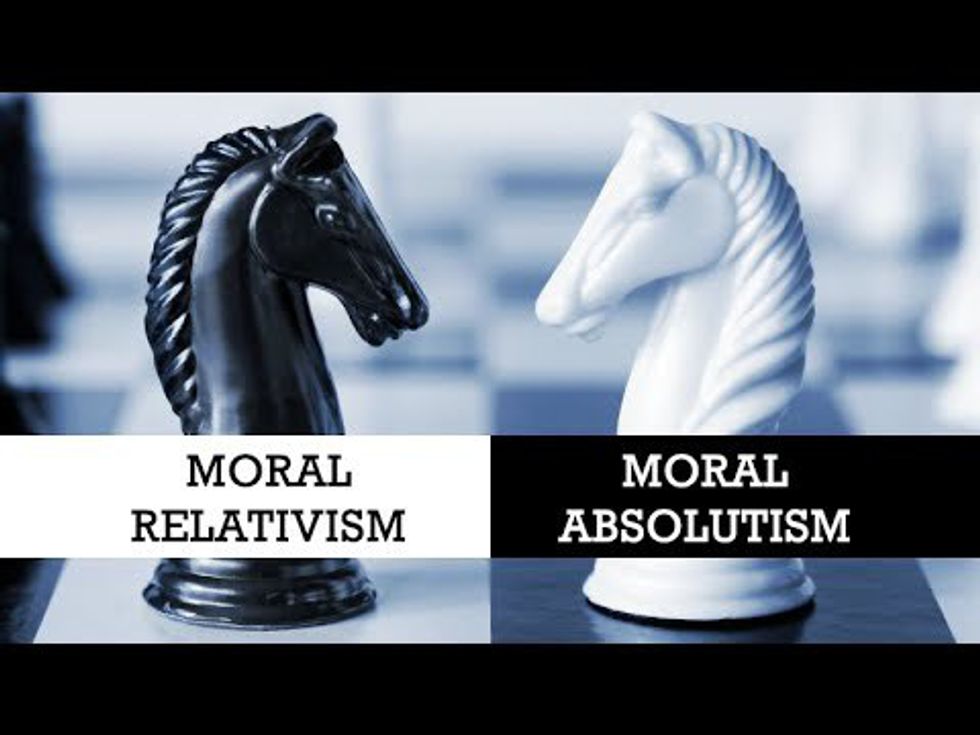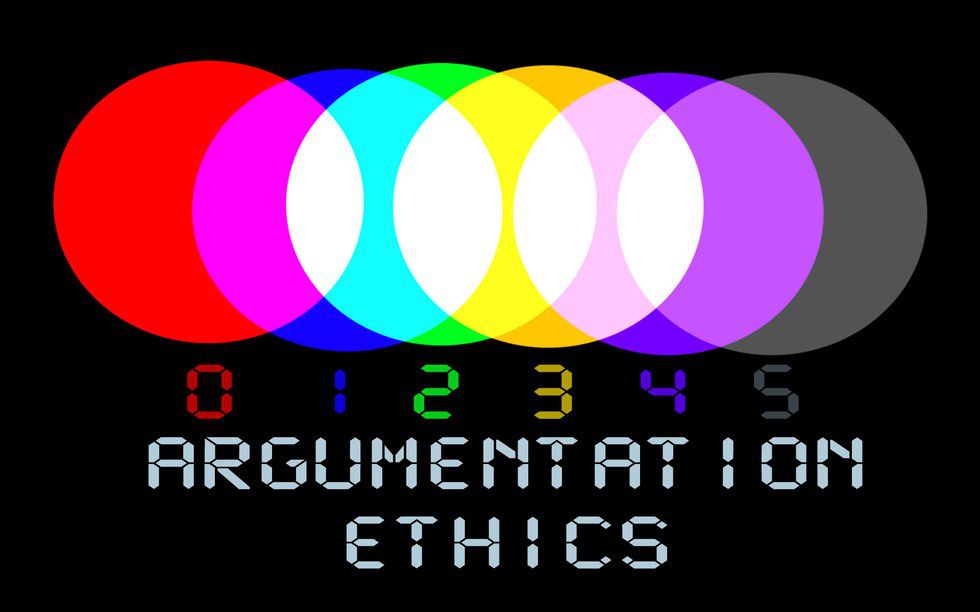The initiation of force is a problem often discussed in society, whether it be the murder of a peaceful person in an armed robbery or the rape of a college student. Likewise, coercion is an immoral evil that is all too common throughout western civilization, as much of it is legitimized by the government’s own laws.
The following are the top 10 misconceptions about the non-aggression principle (NAP).
1. “Aggression is too broad.”
The main issue at hand is how one defines aggression. If aggression is defined as initiatory force, then that is pretty specific, namely: murder, rape, theft, etc. Although, if it is defined in the sense of what feminists call “micro-aggressions,” then this definition becomes diluted. Summarily, I think most people would agree upon the former definition of aggression. The digressions put forth by feminists are more than likely a non-issue.
2. “The NAP is restrictive, unlike the right to self-defense.”
The non-aggression principle is restrictive against initiatory force — that’s it. All propertarian anarchists believe in the defense of private property for themselves and others. Therefore, the right to self-defense is included within the NAP, but the NAP is more than just an affirmation of the right to self-defense. From my observations, those who preach the right to self-defense are constitutionalists, and are OK with transgressions upon private property, as long as it’s constitutional. On the other hand, the NAP includes what the constitutionalists see value in, as well as apply it to government (the NAP would consider all taxation as theft, whereas constitutionalists would equivocate on the type of taxation).
3. “Principles are irrelevant because morality is relative.”
People who believe in moral absolutes have an easier time understanding the NAP because the NAP itself deals with moral absolutes (black and white). By contrast, moral relativists see everything in terms of shades of gray; therefore, relativists have a hard time with the concept of morality itself, so it should be no surprise that they have no faith in the integrity of the NAP. That being the case, they tend to ignore 99 percent of their daily interactions, where no coercion occurs.
4. “How would ‘the use of force’ be adjudicated? Who would determine who the initiator was?”
Again, people who are moral relativists have no business asking this question, because they have already thrown morality out of the window (refer to #3). However, for those who are open-minded enough to consider the integrity of the NAP, such a question can really only be answered by market dynamics, like the price system. A free market in adjudication is really the best way to discover how to resolve disputes.
In regards to the second question posited, because the discovery of how to resolve disputes is spontaneously ordered, there is no way to know ahead of time who would determine who was at fault.
5. “There is no prohibition of fraud, only the initiatory use of physical violence upon others.”
Contrary to popular belief, fraud is a violation of property rights, therefore it is an act of aggression. Confidence artists can truly be said to never use physical violence, yet their crime is largely based upon theft and deception. This form of thievery is not that much different from burglars, muggers and robbers. It’s honestly insane to not classify fraud as a form of criminality.
6. “In terms of semantics, the non-aggression principle is misleading. Wouldn’t it be better to just invoke The Golden Rule?”
The Golden Rule has a religious connotation, specifically with Christianity. Although, I do view it as a moral precept, I don’t think it applies to those who are secular. That being said, the value of the NAP lies in the fact that not only is it cross-denominational, but also that it applies to those who are irreligious. Additionally, some folks, especially the neo-conservatives, claim to follow The Golden Rule but are more than happy to advocate for the murder of innocent foreigners who have caused them no harm.
7. “The non-aggression principle does not apply to those who don’t believe in it, and hurt feelings could count as aggression.”
The same could be said about those who believe in the right to self-defense; this is a non-argument, especially considering the gun-control advocates after major every “mass shooting.” Just because “radical Muslims” don’t abide by The Golden Rule, does that therefore mean it should be tossed out the window?
In regards to the second concern, if “aggression” is being defined as the feminist notion of “micro-aggression,” then just about any form of human action can hurt someone’s feelings. Goodbye, free speech; hello, cultural Marxism.
8. “The non-aggression principle fails to delegitimize government.”
Government has no rights; only individuals do. Those individuals who work for government are not exempt from the NAP; therefore, the initiatory force and coercion they commit only testifies to their criminality, which in turn, delegitimizes government completely. On the other hand, here in America, the NAP delegitimizes the 1787 federal Constitution, one example being Article 1, Section 8, Clause 1, which is the taxing and spending clause. Simply because taxation is theft.
9. “Taxation does not violate the non-aggression principle, because of the social contract.”
If a car dealership imposed a “social contract” onto the inhabitants of a town, they would essentially be coercing them into buying a car, even if they didn’t want one. Similarly, if someone were to suggest that the NAP is a “social contract,” then that would be a performative contradiction because it would be done by way of coercion. That is not the case. The NAP is simply a principle individuals voluntarily choose to live by; there is no central planner mandating compliance.
10. “Argumentation ethics violates the non-aggression principle.”
When two people are talking, even if they are debating and arguing passionately, they are exercising property rights, especially in their person (i.e. the use of their mouths, fingers, vocal cords, lungs, etc.). So, if one of them were to argue that private property is evil, he would immediately contradict himself in the very moment he uttered such an absurd statement.
If anything, argumentation ethics validate the NAP, because the arguers have foresworn the use of coercion by the very act of choosing to argue with each other, instead of using initiatory force.





























